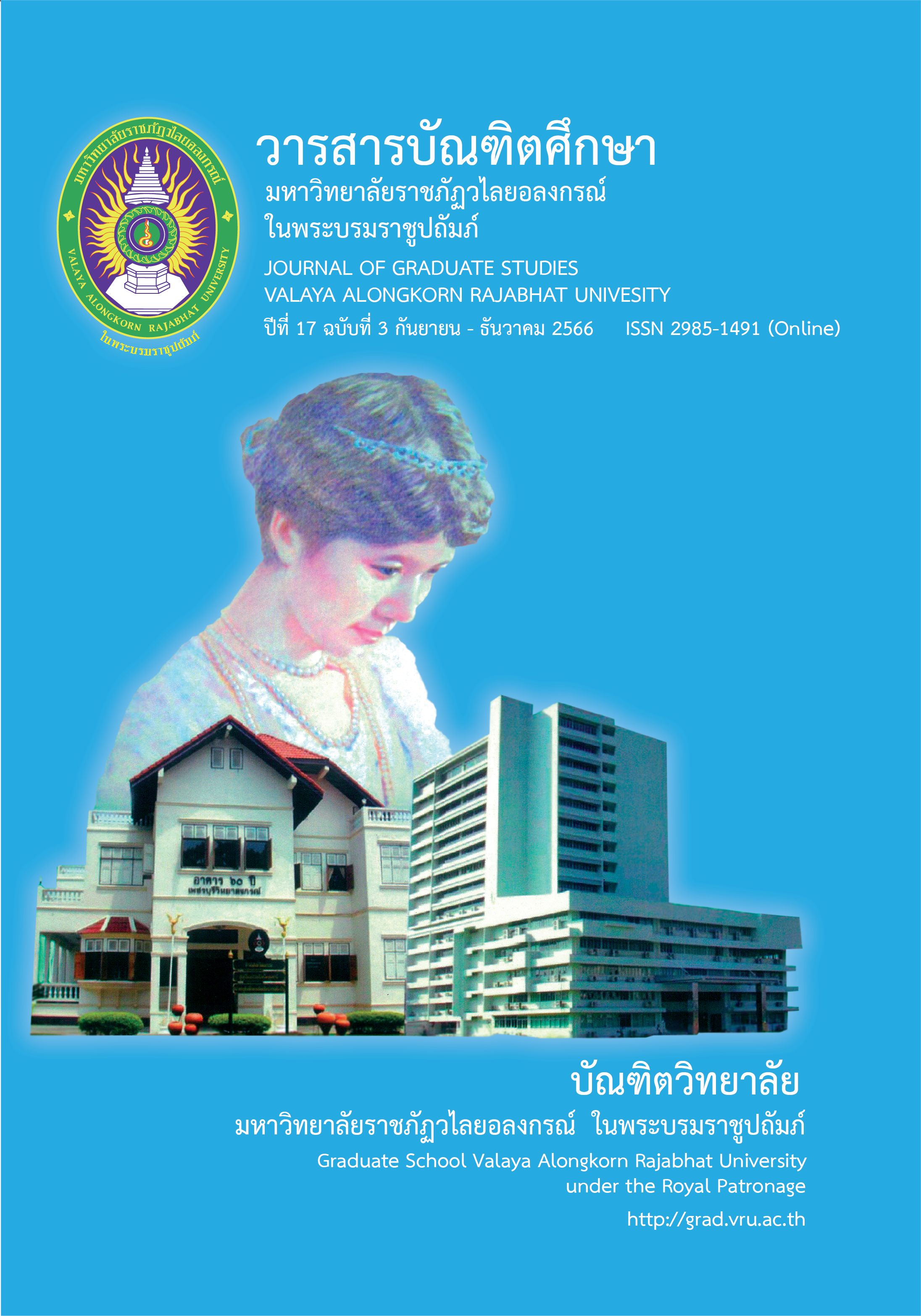THE DEVELOPMENT OF TRUCK DRIVING SKILL MODEL FOR PROMOTING ENERGY SAVING
Main Article Content
Abstract
The purposes of this research were to 1) develop of truck driving skill model for promoting energy saving, and 2) monitor and evaluate the truck driving skill model for promoting energy saving. The design of this research was mixes method and consisted of 4 phases. Phase 1 develops essential skills for course preparation. target audience are 10 professionals in the profession. Phase 2 uses the results of Phase 1 to develop a model of truck driving skills to promote savings. The target audience is 10 experts in training. Phase 3, the experimental model developed. The sample group includes 10 truck drivers by specific selection. And phase 4, follow-up and evaluation. Statistical analysis was percentage, mean, and standard deviation. Find out the efficiency of training course and efficiency index from formula.
The research results showed that: 1) The truck driving skills training model to promote economy consists of 5 steps, which are preparation stage, teaching /demonstration stage, imitation stage, practice step and test stage, which are appropriate and consistent in all items with the mean of the overall course composition Concordance Index was higher than the set criteria. and the results of checking the suitability of the format, the curriculum, the course objectives Learning objectives, content, activities for each unit learning materials and evaluation methods. And 2) the results of monitoring and evaluation revealed that the trainees had the highest level of satisfaction with the training style. The efficiency of development training was 85.14/93.00/96.40 above the specified threshold, the mean of effectiveness index was 0.53, and the savings result found that the energy consumption was reduced by 17.57%.
Article Details

This work is licensed under a Creative Commons Attribution-NonCommercial-NoDerivatives 4.0 International License.
บทความทุกเรื่องได้รับการตรวจความถูกต้องทางวิชาการโดยผู้ทรงคุณวุฒิ ทรรศนะและข้อคิดเห็นในบทความ Journal of Global of Perspectives in Humanities and Social Sciences (J-GPHSS) มิใช่เป็นทรรศนะและความคิดของผู้จัดทำจึงมิใช่ความรับผิดชอบของบัณฑิตวิทยาลัย มหาวิทยาลัยราชภัฏวไลยอลงกรณ์ ในพระบรมราชูปถัมภ์ กองบรรณาธิการไม่สงวนสิทธิ์การคัดลอก แต่ให้อ้างอิงแหล่งที่มา
References
Best, J. (1983). Research in Education. 4ed. Englewood Cliffs. New Jersey: Practice Hall.
BP Statistical Review of World Energy. (2021). World Energy. 67th Edition. London: Pureprint Group.
Brahmawong, C. (2013). kānthotsō̜p prasitthiphāp sư̄ rư̄ chut kānsō̜n [Development Testing of Media and Instruction Package]. Silapakorn Education Research Journal. 5(1), 1-20.
Goodman, R. I., Fletcher, K. A. and Schneider, E. W. (1980). The Effectiveness Index as Comparative Measure in Media Product Evaluation. Educational Technology. 20(09), 30-40.
Joyce, B. & Weil, M. (2000). Models of Teaching. (6th ed.) Boston: Allyn and Bacon.
Kerpasit, P. (2018). kānphatthanā rūpbǣp kān fưk ʻoprom samatthana wichāchīp chāng haidrō̜lik ʻutsāhakam [The Development of Training Model for Occupation Competency of Industry Hydraulic Technician]. Doctoral dissertation. King Mongkut’s University of Technology North Bangkok.
Ketusiri, A. (2016). kānphatthanā rūpbǣp kān rīan bǣp rūammư̄ bon khrư̄akhāi khō̜mphiutœ̄ [Development of a Collaborative Learning Model on Computer Networks]. Doctoral dissertation. King Mongkut’s University of Technology North Bangkok.
Lawshe, C. H. (1975). A Quantitative Approach to Content Validity. Personnel Psychology. (28), 563-575.
National Energy Information Center. (2022). sathānakān phalangngān Thai pī Phō̜.Sō̜. 2564. Krung Thēp: krasūang phalangngān [Thai Energy Situation B.E.2021]. Bangkok: Ministry of Energy.
Office of the National Economic and Social Development Council. (2015). rāng yutthasāt chāt raya yīsip pī (Phō̜.Sō̜. sō̜ngphanhārō̜ihoksip - sō̜ngphanhārō̜ičhetsipkāo) [Draft of the 20-years national strategy (2017-2036)] Retrieved from https://spm.thaigov.go.th/FILEROOM/spm-thaigov/DRAWER004/GENERAL/DATA0000/00000362.PDF
Phengpinyo, W., Sintanakul, K. & Nomphonkrang, T. (2021). kānphatthanā rūpbǣp kānčhatkān rīanrū tām phǣnkān sō̜n thān samatthana dōi chai panhā pen thān rūam kap kān ʻāng hētphon dūai thān kō̜ranī [The Development of Competency-Based Learning Using Problem-Based Learning with Case-Based Reasoning]. Journal of Graduate Studies Valaya Alongkorn Rajabhat University. 15(3), 179-191.
Plumchit, W., Yuphong, S. and Poolkrajang, A. (2021). kānphatthanā laksūt fưk ʻoprom hūanā ngān thurakit khonsong sinkhā nai prathēt [Development on Training Curriculum for Transportation Supervisor in Domestic Logistics Business]. Journal of Graduate Studies Valaya Alongkorn Rajabhat University. 15(1), 154-162.
Poolkrajang, A. (2014). kānphatthanā laksūt fưk ʻoprom kānčhat tham phǣnkān patibat samrap khrū fưk ʻāchīp khō̜ng rōngrīan fưk ʻāchīp Krung Thēp Mahā Nakhō̜n [Training Program Development for a Practical Plan for Teacher Training at Bangkok Vocation Training Schools]. Journal of Education Studies. 42(2), 164-177.
Saniul, A. & Aonghus, M. (2014). A critical review and assessment of Eco-Driving policy & techonology: Benefits & limitations. Transport Policy. 35, 42-49.
Satienchaiyakij, P. (2012). kānphatthanā rūpbǣp kān fưk ʻoprom bǣp phasomphasān tām māttrathān ʻāchīp chāng sō̜m bamrung nai rōngngān ʻutsāhakam [The Development Blended Training Model Based on Plant Maintenance Occupational Standard]. Doctoral dissertation. King Mongkut’s University of Technology North Bangkok.
Walnum, H. J. and Simonsen, M. (2015). Does driving behaviors matter? An analysis of fuel consumption data from heavy-duty trucks. Transportation Research Part D. 36, 107-120.


